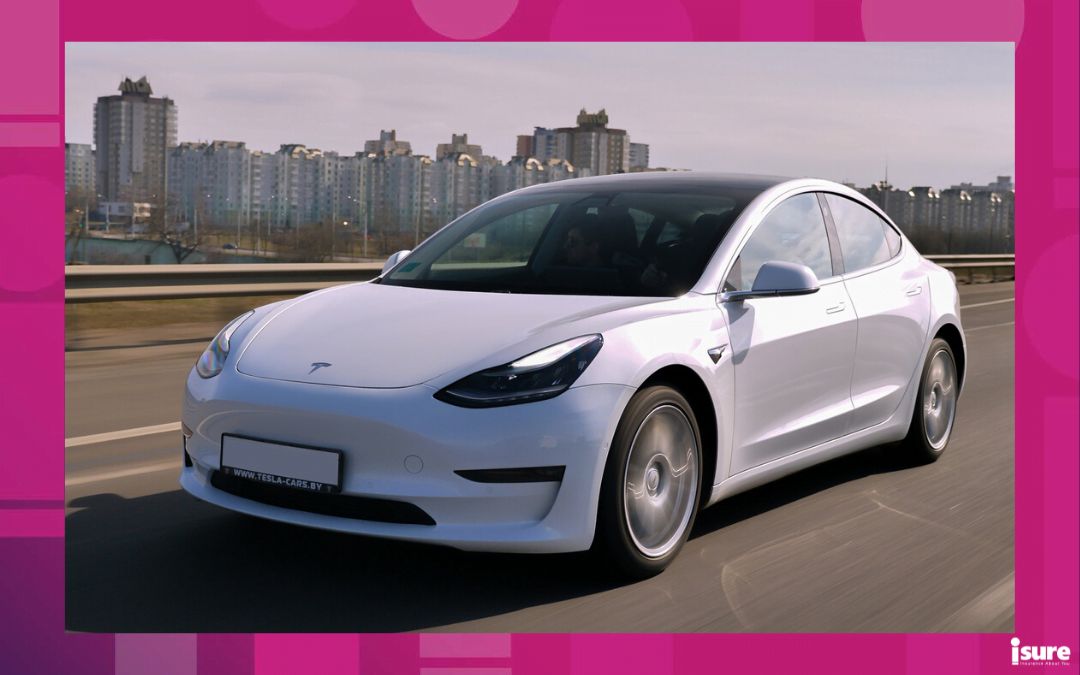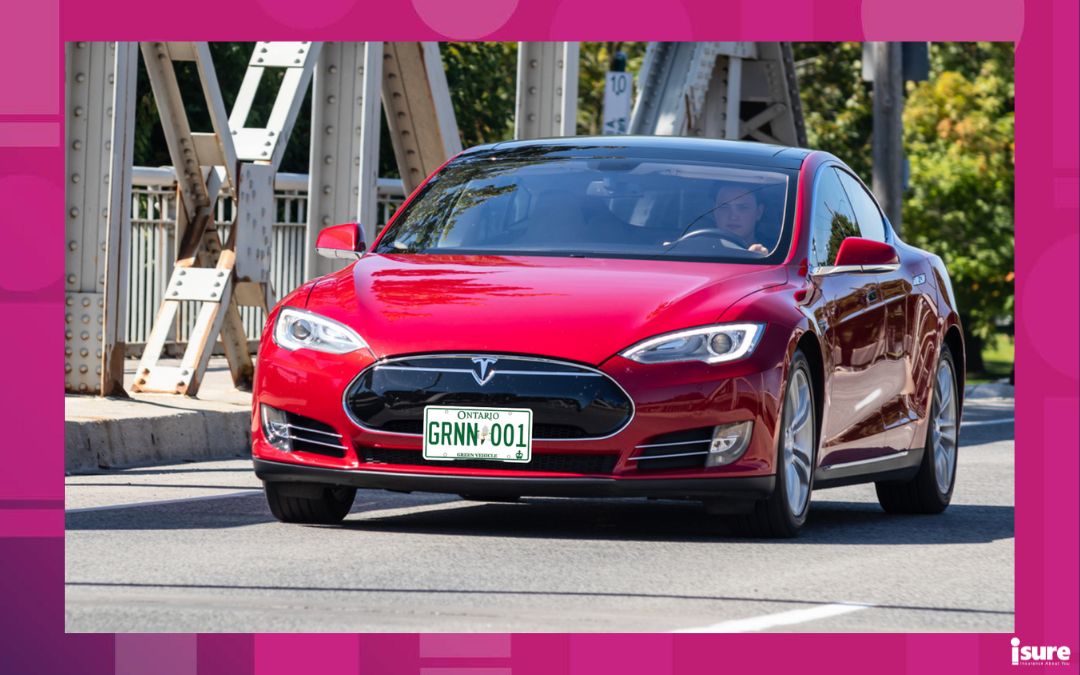With growing climate consciousness, both the Canadian government and residents are looking for ways to reduce their carbon footprint and switch to climate-friendly alternatives. EVs, or ‘Electric Vehicles’, are quickly becoming one such alternative. Now that they are gaining in popularity, most insurance companies are offering insurance policies for electric vehicles. Therefore, it’s important to understand why electric car insurance costs are often different than vehicles powered by fossil fuels. Inevitably, with such big changes comes concerns; does insurance for an electric vehicle cost more than a gas vehicle? What’s the average cost of EV insurance in Ontario? And what exactly qualifies as an electric vehicle? Here’s what you need to know.
Considering going green?
Many drivers are switching to electric vehicles for various reasons, including convenience, environmental responsibility and fuel efficiency. Canadian drivers are feeling pain at the pumps yet again, as gas prices are expected to climb again. By the fall, they’re expected to reach close to $2 a litre. According to Canada Energy Regulator, 86,032 electric vehicles were registered in Canada in 2021. This represents a record high of 5.3% of total vehicle registrations. That’s up from 56,165 EVs registered in 2019. If you are debating whether to switch, it’s a good idea to consider the costs of owning an EV. This includes EV batteries and your insurance premium. Then, you can decide if the initial purchase sits well with your budget.
2030 Emissions Reduction Plan
Canada’s 2030 Emissions Reduction Plan outlines initiatives that are underway in Canada to bring down greenhouse gas emissions. Additionally, there will be new measures that will get the country closer to its emissions reduction target of 40-45% below 2005 levels by 2030, and net zero emissions by 2050. To meet this goal, the Canadian government is also encouraging the use of EVs by introducing various initiatives in this space. This includes investing in EV charging infrastructure and new incentives to EV buyers. These incentive offerings can be found through both the federal and provincial governments.
Auto insurance for EVs versus gas vehicles
There are many factors that insurance companies consider while determining your EV insurance premium. This includes your age, driving record, location and vehicle model. Companies also consider the cost to replace a vehicle, which is usually higher if the vehicle uses advanced technology. This can be true for some EV models. Some EV insurance companies also offer green vehicle discounts to owners of electric and hybrid vehicles.
Weighing your options
To illustrate how an EV insurance premium can measure up to the fuel competitor, it’s best to compare auto insurance quotes for, say, a 35-year-old male with a G licence. He currently lives in Toronto with a clean driving record and insuring either a Honda Civic LX, Kia Soul EV Premium, or Nissan Leaf S Plus. The quotes reveal that one of the most affordable EVs to insure, the Kia Soul EV Premium, is 30% more affordable to insure than your standard Honda Civic LX gas vehicle. One of the cheapest EVs to purchase, the Nissan Leaf S Plus, is also 20% more affordable to insure than the same Honda.
How can driving a green or hybrid vehicle impact your car insurance?
Driving a green or hybrid vehicle will not directly impact your car insurance rates. It is important to remember that when driving an eco-friendly vehicle, the unique lifestyle and environmental benefits will often outweigh the cost. Since electric cars are more expensive to maintain when they do require it, insurance rates will be higher than for an average car. The Zero-Emission Vehicles Program (iZEV) may be able to cover higher insurance rates or provide rebates. Visit the Government of Canada’s website to see an updated list of eligible vehicles. This program only covers vehicles purchased after May 1st, 2019. So, if you are considering buying an eco-friendly vehicle, this offer is great to keep in mind.
5 things to consider about electric vehicles and EV insurance
1. Safety systems
Insuring an electric vehicle may be cheaper than a gasoline vehicle, but according to canadianunderwriter.ca, it can depend on a multitude of factors. EV insurance will vary for each consumer and the vehicle they’re comparing. “Many EVs come with advanced safety systems that make them less likely to be involved in a collision, which can drive rates down,” the rate aggregator contends. “Still, the hardware powering those systems (not to mention the battery pack) tends to be pricey to replace if damaged, which can drive your annual rate up.”
2. Operating costs
Operating costs for EVs tend to be “substantially lower” than for petrol vehicles. The Nissan Leaf costs about $400 a year to drive 20,000 kilometres, while an equivalent gas-powered vehicle costs $1,848. Maintenance costs for electric vehicles can be lower, too. While a battery replacement may be expensive, warranties tend to last for at least eight years. And because of regenerative braking—where the motor slows to reclaim energy—brakes usually last for up to 300,000 kilometres. EV brake pads can sometimes last even longer!
3. Government discounts
Federal government and insurance discounts are also available. The federal government offers rebates of up to $5,000 under its iZEV program for those who purchase select zero-emission vehicles. Insurers like Desjardins and TD Insurance offer green incentives for insurance buyers.
4. Fuel costs
Unpredictable fuel costs are one of the main reasons interest in EVs keeps growing. Some of the costs that gasoline-powered cars or trucks require are:
- Regular oil changes
- Tune-ups
- Filter changes
The EV has no oil or filter to change, no gaskets or spark plugs to wear out, no transmission fluid to flush, and tune-ups can be done via automatic software updates right in your driveway while you sleep.
5. Safety features
In terms of vehicle safety, occupants in EVs and hybrid models are less likely to be injured in a crash than people in similar gas-powered vehicles. A report by Chicago-based CCC Intelligent Solutions finds EVs tend to weigh more than gas-powered vehicles due to the lithium-ion batteries in EVs. The way vehicles are designed for crash worthiness may also need to change. Some of the heaviest components of the vehicle, like the engine, have been moved to the base or rear of the vehicle. As a result, this will potentially change the types and severity of motor vehicle injuries.
6. Added perks
Aviva Canada introduced a $2,000 subsidy for customers who upgrade to an EV and purchase EV insurance after a total loss of their gas-powered vehicle. It’s offering other perks as well, including enhanced battery protection if the battery is damaged in an accident, free towing to a charging station in the event of a dead battery, and a premium discount of up to 10%.
What is the cost of EV insurance?
An electric vehicle needs the same type of insurance as regular car gas-fuelled vehicle. In Ontario, it is mandatory for all vehicles to have a basic car insurance policy. How much your auto insurance will cost for an electric vehicle varies based on the type of vehicle you are insuring, your driving history and what type of coverage you want. A clean driving record with a less expensive vehicle will lead to lower car insurance quotes. That being said, the average cost in Canada ranges from $190 a month up to as much as $400. This includes:
- A minimum of $200,000 in third-party liability coverage
- Accident benefits coverage
- Uninsured motorist protection
- Direct compensation property damage coverage (DCPD)
Drivers can also enhance their insurance coverage policy by customizing their policies with optional coverages. Most choose to include collision or comprehensive coverage to shield you against a wide range of dangers that can harm your car while it is parked. They also cover you if you hit an animal—say, a deer—and it causes damage since you weren’t at fault.
Do EV’s have cheaper car insurance?
Because EVs can have expensive, tech-savvy features, you might expect higher premiums. But in very general terms, insurance rates are cheaper for EVs compared to gasoline-powered vehicles. For example, for a 30-year-old female with 10 years of driving experience and a clean driving record, insurance rates were compared between three different cars:
- A Nissan Leaf (named the cheapest EV to operate since 2018)
- A gas-powered Honda Civic
- A Chevrolet Cruze
The study found that in both Toronto and Calgary, the Nissan Leaf was cheaper to insure, but sometimes only between $37 and $66 compared to the Cruze. The largest difference for the profile was between the Leaf and Civic ($211 more expensive for gas-powered in Toronto and $348 in Calgary).
According to a February 2021 KPMG survey, seven of 10 Canadians who intend to buy a new car in the next five years are leaning toward purchasing an all-electric vehicle or hybrid.
Tips to save on your EV and insurance
- Install an anti-theft device
- Used electric vehicles cost less to purchase and are often more affordable to insure
- Increase your policy deductible to lower your premiums
- Some electric vehicles are more expensive to insure than others, which is why we recommend checking reviews online
- Ensure your vehicle’s home charging station is installed by a professional electrician, as your home insurance rates will stay lower if any electrical work has been done by a professional
- Bundling home and car insurance can help to lower your bottom line on premiums
EV insurance: A summary
The growing awareness around sustainability and rising carbon emissions, coupled with increasing gas prices, are resulting in many Canadians switching to electric vehicles (EVs). Even though you may get a discount for driving an environmentally-friendly vehicle, comparing car insurance rates can help you get the best rate for your vehicle and situation. Depending on the EV model you’re interested in, it can end up being less expensive to insure and maintain than a gas vehicle. When you’re ready to go green, speak with one of our isure representatives to learn more about finding the best competitive rates for your new EV.




